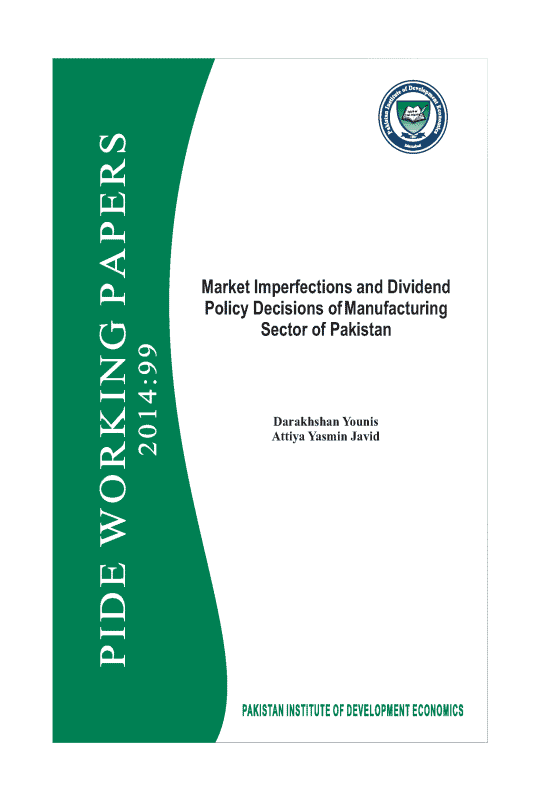Market Imperfections and Dividend Policy Decisions of Manufacturing Sector of Pakistan
Dividend policy is an important issue of corporate finance and the present study examines the effect of market imperfections such as asymmetric information, agency costs and transaction cost of issuing external on corporate dividend policy for 138 firms selected from all major manufacturing sectors of Karachi Stock Exchange over the period 2003 to 2011. The results show that dividend yield depends on the last year’s dividend yield and current year earnings that supports the Lintner (1956) model suggesting that management follow smooth dividends and are reluctant to change dividend policy. The results confirm that dividends signal the firm value (returns) and firm performance (returns on assets, market to book value and earnings). The positive and significant relation of free cash flow and collateral capacity with dividend indicate that dividends help to reduce agency cost problems and these findings support agency cost theory. The results confirm that dividends are used as a tool to reduce transaction cost of issuing external finance and that firm size and sales growth are more effective instruments to reduce transaction costs. Large and more profitable firms pay more dividends. Firm age, market to book value and price to earnings ratio are used to capture firm maturity the results show the firm life cycle theory of dividend is not valid. The irrelevance of life cycle theory further confirms signalling theory of dividend more relevant in explaining dividend decisions in case of Pakistan. Free cash flow and return on asset are significant and support free cash flow hypothesis. The results support dividends are used as signalling devise for outside investors that firm is running on profitable lines and reduce the agency cost and transaction costs but signalling theory is the most dominant This evidence is in confirmation with empirical findings of other emerging markets.




